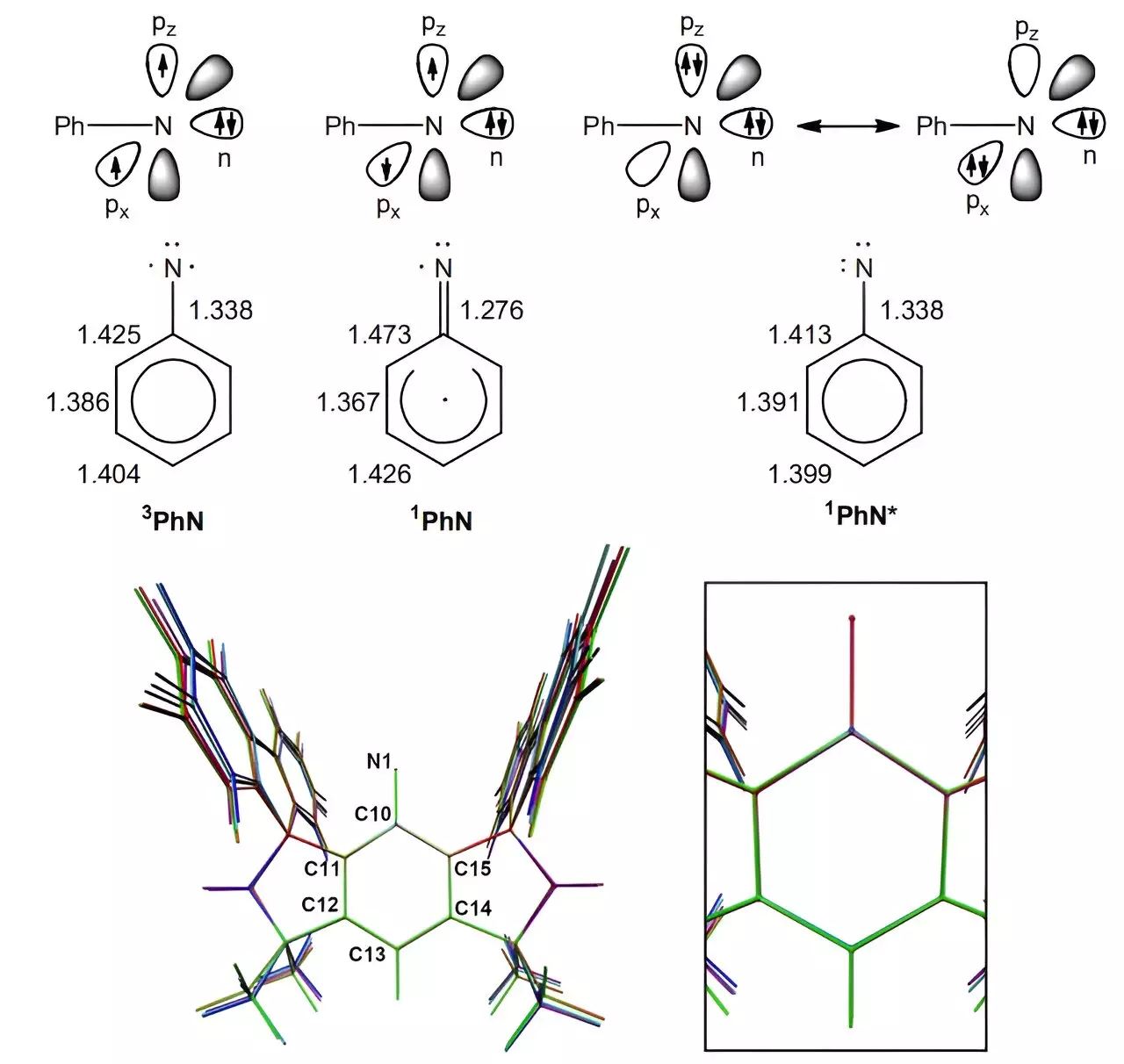A recent study conducted by a team of chemists at the University of Bremen in Germany has brought about a significant breakthrough in the field of nitrene research. Nitrenes, which are known for their fast reaction times, have posed a challenge for chemists due to their short-lived nature. However, this team of researchers has developed a new type of nitrene capable of slow reactions that can last for up to three days, opening up the possibility for a whole new class of nitrenes that could be used in various applications.
The researchers achieved this feat by synthesizing a slow-reacting nitrene using a chemical scaffolding known as MSFluind. This scaffolding, originally built in 2011 by another team, has been used in recent research efforts to stabilize molecules similar to nitrenes. By utilizing the MSFluind scaffolding, the researchers were able to impede access to the nitrogen atom during a reaction, resulting in a significantly slower process.
In their study, the researchers exposed a sample of MSFluindN3 to ultraviolet light, which reduced it to MSFluindN, thereby synthesizing the slow-reacting nitrene. They then conducted various analyses, including X-ray crystallography, electron paramagnetic resonance spectroscopy, and superconducting quantum interference device magnetometry, to study the characteristics of the newly developed nitrene. Surprisingly, the nitrene maintained its spin-triplet ground state and persisted for up to three days, a duration significantly longer than typical nitrene reactions.
The development of this slow-reacting nitrene opens up new possibilities for the synthesis of transition metal complexes, a task that has been challenging due to the fast reaction times of nitrenes. The researchers believe that their newly developed technique could pave the way for a wide range of applications in the field of chemistry. Future research efforts could focus on utilizing this slow-reacting nitrene in various chemical reactions and exploring its potential in industrial applications.
The groundbreaking research conducted by the team of chemists at the University of Bremen represents a significant advancement in nitrene research. Their development of a slow-reacting nitrene with a prolonged reaction time has the potential to revolutionize the field of chemistry and open up new avenues for exploration.


Leave a Reply